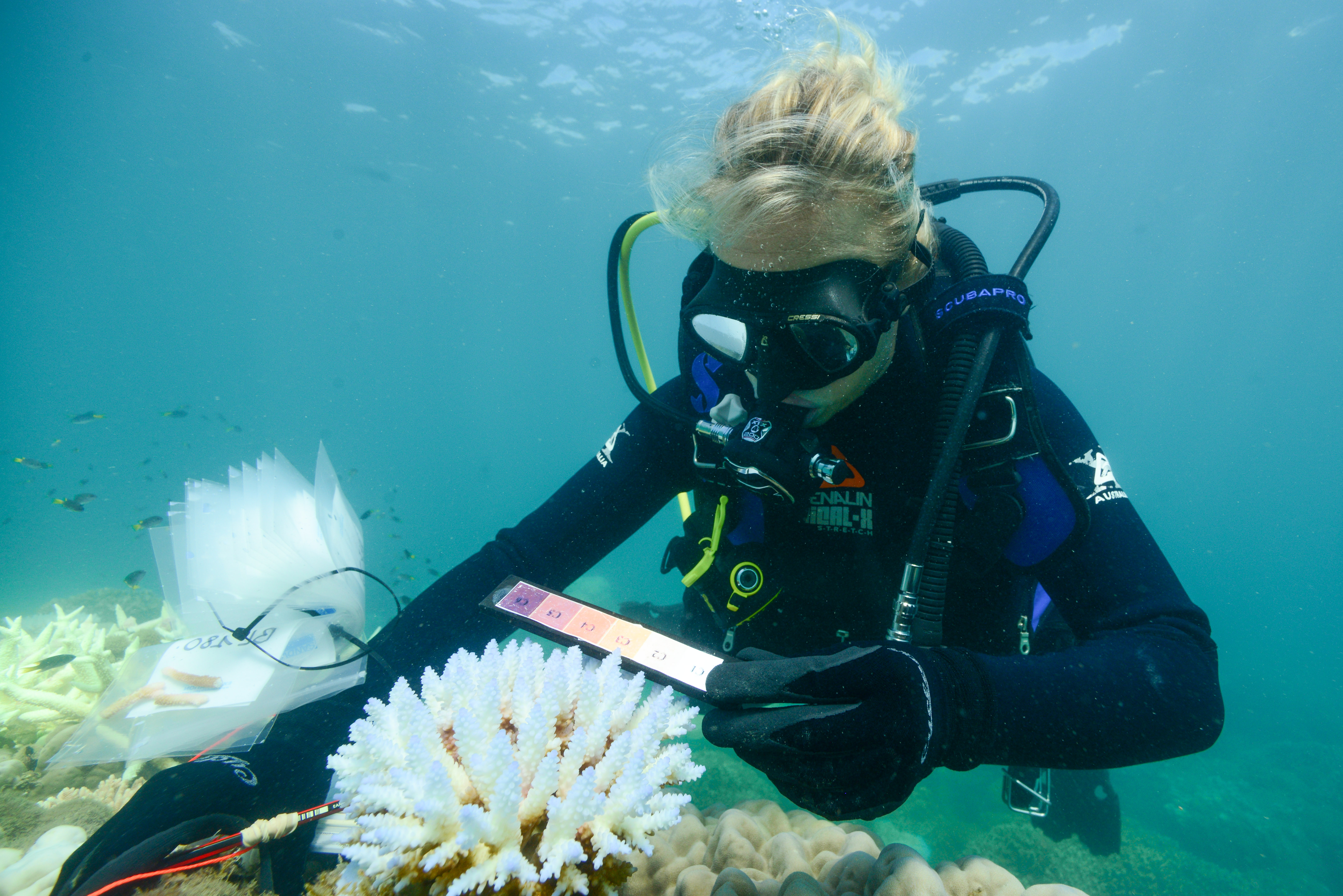Media release
From:
New research has taken scientists closer to being able to identify corals that are less likely to bleach. The scientists hope this knowledge will be used to target protection of resilient corals and facilitate research into adaptation measures such as selective breeding.
Climate change is recognised as the most significant threat to coral reefs worldwide. Mass coral bleaching occurs when water temperatures exceed long term temperature maxima usually over the summer. If temperatures are extreme or remain high for a prolonged period, many bleached corals will die.
While stabilisation of ocean temperatures is required for the long-term survival of coral reefs, enhanced existing management and new approaches may benefit reef ecosystems in a warming future.
Columbia University population geneticists Dr Zachary Fuller and Prof Molly Przeworski, coral biologist Dr Line Bay from the Australian Institute of Marine Science (AIMS) and University of Texas Prof Mikhail Matz recently published a study in Science which lays the groundwork for developing a genomic predictor of coral bleaching. It is the world’s largest coral genome study to date.
“Coral species are under pressure to adapt to increasing temperatures across the globe,” Dr Bay said.
“Fortunately, we see signs that some colonies and species are more heat tolerant than others. Corals with the right genes for tolerance are key to adaptation and also gold for coral reef managers.”
This research could be used to identify the corals most likely to resist bleaching on reefs.
“Knowing which corals are more likely to be resilient to bleaching could inform reef protection strategies as well as provide potential stock for selective breeding programs suggested to accelerate the spread of naturally tolerant corals among reefs,” Dr Bay said.
To identify the genetic markers that underpin bleaching tolerance, the researchers sequenced the genomes of 237 colonies of the coral species Acropora millepora, collected at 12 reefs on Australia’s Great Barrier Reef during the mass bleaching event of 2017. They then tested for associations of genetic variants with the bleaching level observed.
“Genomics allows us to examine the genetic differences that may influence differences in bleaching tolerance. What we didn’t know was how many genetic differences influenced this trait and how large their effects were,” said Professor Przeworski.
While the group identified specific genes that supported coral heat resilience, the level of bleaching was also explained by complex interactions among many genes, as well as by effects from their algal symbionts and the environment.
Dr Fuller said the researchers found no single gene that had a large influence on bleaching response on its own, rather it was the combined small effects of many genetic differences.
“We can use these genetic differences together, along with taking into account the effects of the symbiont and environment, to predict which corals might be tolerant to bleaching,” he said.
The paper, ‘Towards a genomic predictor of bleaching in the coral Acropora millepora’, was published in Science on July 17.
The research was funded by AIMS, the Australian Government’s National Environmental Science Program's Tropical Water Quality Hub, the Agouron Institute and Columbia University.




 Australia; International; QLD
Australia; International; QLD


